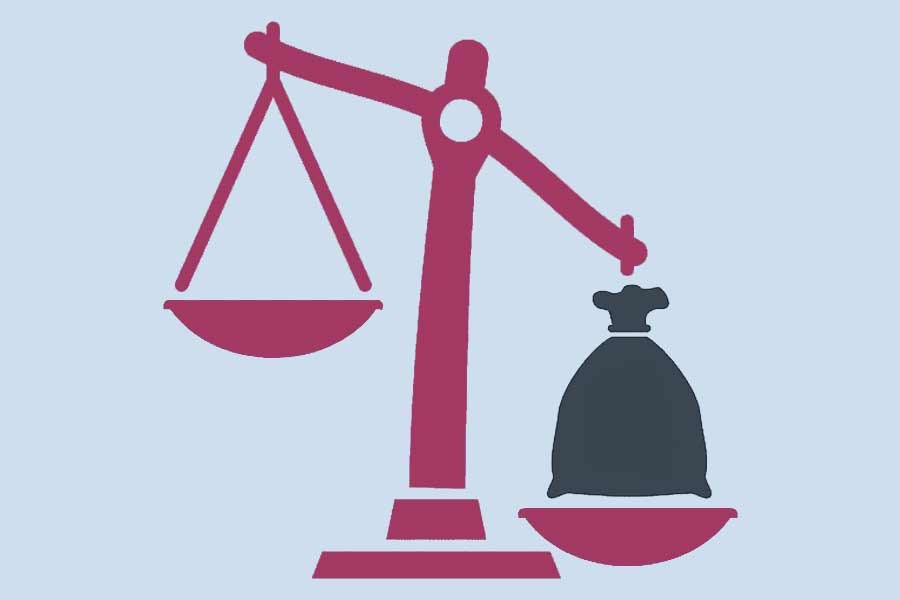

As the government prepares the national budget for the upcoming fiscal year, its pre-budget consultation with trade bodies brought the longstanding issue of tax collection into sharp focus. This is unsurprising, given that businesses account for the majority of the country's revenue. The consultation took place against the backdrop of significant pressure on the National Board of Revenue (NBR) which has fallen short of its revenue collection target by Tk 650 billion in the first nine months of the current fiscal year. This underperformance is particularly significant as the International Monetary Fund (IMF) has reportedly linked the release of pending tranches from its $4.7 billion loan package for Bangladesh to improved revenue performance, among other conditions. This has left the government caught between two opposing demands, one from tax authorities seeking tighter regulations to increase revenue, and the other from the business community calling for relief from tax burdens.
During the consultation hosted by the NBR and the FBCCI, business leaders from textiles, garments, steel and SME sectors detailed the various obstacles they face. They emphasised how escalating operational costs, driven by rising energy prices, bureaucratic delays and stringent tax regulations are stifling entrepreneurship, even in industries where the country holds a competitive advantage. The president of the Bangladesh Textile Mills Association (BTMA), for instance, alleged that customs officials coerced businesses into paying bribes to release bank guarantees required for clearing goods at ports. Similarly, the president of the Steel Manufacturers Association cited bureaucratic inefficiencies as a major deterrent to investment, while the Meghna Group's chairman pointed to their $600 million investment in Cumilla EPZ lying underutilised due to two years of delays in securing utility connections. The concerns voiced by the business community are far from groundless. Their calls for policy consistency, reduced harassment and affordable utilities are not just requests for favours but essential prerequisites for industrial development. There can be no doubt that issues such as corruption and administrative bottlenecks not only inflate operational costs but also erode investor confidence and deter both domestic and foreign capital.
Seeking respite from current tax pressures, business leaders proposed several measures including raising the tax-free income threshold for individuals, reducing the source tax on all exports to 0.50 per cent, and establishing a uniform but lower VAT rate on local goods to support SMEs. While these proposals reflect the difficulties faced by businesses, the government has limited scope for concessions. The finance adviser present at the consultation rightly noted that significant tax relief is unfeasible given the country's growing deficits and debt obligations. With limited external borrowing options and development partners pushing for stronger domestic revenue mobilisation, the government has little fiscal freedom. In this context, the administration's cautious stance is understandable. That said, the government can and must address operational hurdles facing the private sector to improve the overall ease of doing business.
The government, therefore, faces a delicate and complex balancing act. A purely revenue-driven approach that overlooks the genuine challenges faced by businesses risks harming long-term economic growth and, ironically, future tax receipts. Conversely, excessive leniency could compromise essential revenue generation. As the saying goes, the art of taxation lies in plucking the goose so as to obtain the most feathers with the least hissing. The upcoming budget must reflect this wisdom by reducing structural barriers and cracking down on corruption, all the while meeting revenue targets without overburdening businesses. Only through such a balanced approach can the government sustain economic growth and secure the resources needed for national development.


 For all latest news, follow The Financial Express Google News channel.
For all latest news, follow The Financial Express Google News channel.